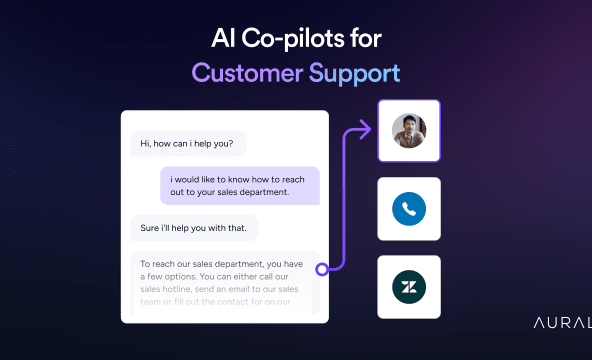Support efficiency
Support efficiency refers to the ability of customer service teams or support systems to handle customer inquiries, issues, and requests in a timely, effective, and resource-efficient manner. Maximizing support efficiency is crucial for businesses to reduce costs, improve customer satisfaction, and scale their operations. By streamlining workflows, automating routine tasks, and utilizing technology effectively, businesses can ensure that their support teams can manage increasing customer demands while maintaining high service standards.
One of the key drivers of support efficiency is automation. By automating repetitive and time-consuming tasks, businesses can significantly reduce the workload on human agents, allowing them to focus on more complex or high-priority issues. For example, AI-powered chatbots can handle a large volume of simple customer queries, such as FAQs, order status checks, and password resets, providing instant responses without requiring human intervention. This reduces response times, enhances the customer experience, and allows support teams to scale efficiently. Automation tools like ticket routing systems can also prioritize and assign customer issues to the appropriate agent or department, ensuring that each issue is handled by the right person, further improving efficiency.
Self-service options are another powerful tool for improving support efficiency. By offering customers access to a knowledge base, FAQs, video tutorials, and other self-help resources, businesses can empower users to resolve issues on their own, without needing to contact support. A well-designed self-service portal can drastically reduce the number of inbound support requests, freeing up agents to focus on more complex or sensitive inquiries. Additionally, AI-powered self-service systems can offer personalized recommendations and solutions based on customer data, further improving the user experience and support efficiency.
Real-time collaboration tools also contribute to support efficiency by enabling agents to work together more effectively. These tools allow team members to communicate, share information, and escalate issues seamlessly, reducing the time it takes to resolve customer problems. For example, if an agent encounters a particularly difficult issue, they can quickly reach out to a colleague or a subject matter expert for assistance, minimizing delays and ensuring that customers get the right help. Integration of customer relationship management (CRM) systems with support tools further improves collaboration by giving agents a comprehensive view of customer interactions and history, enabling them to provide more personalized and efficient support.
Performance analytics and reporting play a crucial role in improving support efficiency. By tracking key performance indicators (KPIs) such as response time, resolution time, first-contact resolution (FCR), and customer satisfaction (CSAT) scores, businesses can gain insights into the effectiveness of their support processes. These analytics allow managers to identify bottlenecks, assess agent performance, and make data-driven decisions to optimize workflows. For example, if response times are consistently high, it may indicate that agents are overwhelmed, and additional resources or process adjustments may be needed. By continuously monitoring performance, businesses can make adjustments that boost efficiency and customer satisfaction.
Workforce management also impacts support efficiency, especially for businesses with large customer support teams. Properly managing scheduling, task allocation, and agent workload ensures that teams are not overburdened and that resources are deployed where they are needed most. Advanced workforce management tools can predict demand based on historical data, ensuring that the right number of agents are available at peak times. This minimizes wait times for customers and ensures that support is available when it is needed most.
Another aspect of support efficiency is knowledge sharing and training. Ensuring that support agents have access to accurate, up-to-date information is critical for resolving issues quickly. Knowledge management systems allow agents to easily access product documentation, troubleshooting guides, and previous customer interactions. Continuous training and upskilling of agents also play a role in improving efficiency, as knowledgeable agents can resolve issues faster and with greater confidence. AI-powered tools can assist in training by offering real-time suggestions and performance feedback, helping agents improve their skills on the job.
Finally, integration with other business systems enhances support efficiency by enabling better coordination between customer service and other departments, such as sales, marketing, or logistics. For instance, integrating a support system with an inventory management system can allow agents to quickly check product availability or order status, providing customers with faster and more accurate information. Integration with marketing tools can also provide insights into customer sentiment, allowing support agents to handle interactions more effectively.
In conclusion, support efficiency is essential for businesses to deliver exceptional customer service while optimizing resources. By automating routine tasks, offering self-service options, enhancing collaboration, leveraging analytics, and investing in training and knowledge management, businesses can improve their support operations and handle more customer interactions with fewer resources. The result is a more streamlined, cost-effective support system that enhances the overall customer experience, builds brand loyalty, and positions the business for scalable growth.

- Articles
-
 Amy
Amy
- 9 min read
